World leaders must commit themselves to holding current rises in global temperatures to 2C. That is the stark message of experts and campaigners in the runup to the United Nations climate summit that will be held in New York later this week.
They say that 2C is the maximum temperature increase that the world can tolerate without causing environmental mayhem, and they insist that politicians attending the meeting, including Barack Obama and David Cameron, must agree to that upper limit.
"If Obama and the others decide that 2C has to be the limit, then negotiators will subsequently find it so much easier to hammer out a framework for curtailing carbon dioxide emissions over the next year," said Nicholas Stern, the British economist and climate expert who will be attending the meeting.
"If they have a specific goal – a 2C limit – then that will make it so much easier to design carbon emission limits for different countries," he told the Observer.
The importance of setting an upper temperature limit is also backed by Archbishop Desmond Tutu, writing in the Observer. "Our environment is already saturated with carbon," states the Nobel peace prizewinner and activist. "If we don't limit global warming to two degrees or less, we are doomed to a period of unprecedented instability, insecurity and loss of species."
The meeting in New York is not part of the United Nations' official climate negotiating process. Instead it has been called by UN secretary-general Ban Ki-moon to kickstart the full-scale carbon emission negotiations that are scheduled to be held in 2015. These are intended to culminate in official talks in Paris next year when it is hoped that a framework will be hammered out for limiting carbon emissions over the following three decades.
"More than 120 world leaders are going to attend the conference in New York, and that will be extraordinarily important in setting the agenda for the Paris talks," added Stern. "If those leaders agree to that temperature limit, the decision will open up all sorts of negotiating avenues."
Scientists say that humans have now poured around 1,950bn tonnes of carbon dioxide into the atmosphere – by burning fossil fuels – over the last 200 years. If that total reaches 3,670bn tonnes, they add, it will be hard to avoid a 2C rise in global temperatures and that would trigger a host of devastating changes to the climate. These would include major rises in sea levels, the melting of ice-caps, droughts in Africa, America and Asia, storms and ocean acidification.
The trouble is that, at present rates of fossil fuel consumption, that 3,670bn-tonne limit will be reached in less than three decades. The aim of the New York meeting – which will be marked by a people's climate march in several cities, including London on Sunday – is to give new impetus to climate change negotiations which have stalled over the past two or three years. "The United Nations has run up against governments and leaders of industry who have until now put short-term economic and political goals ahead of our collective long-term survival," writes Tutu. "We can no longer tinker about the edges."
Observers at the meeting will look for a strong lead from Obama. According to Stern, it is critically important that the US president announce his commitment to limit global temperatures to a rise of no more than 2C. It is also hoped that the Chinese leadership will play a more active role in talks, he added.
The New York meeting takes place amid increasing worries about climate change and in particular about surging carbon dioxide levels, the major cause of global warming. These levels rose at their fastest rate for 30 years in 2013, according to figures released this month by the World Meteorological Organisation.
The carbon dioxide content of the atmosphere now stands at 142% of what it did before the industrial revolution, with concentrations reaching 396 parts per million last year, an increase on the previous year of 2.9ppm. At this rate, annual concentrations are likely to pass the symbolic 400ppm level by 2015, say scientists.
"Our weather is becoming more extreme due to human activities such as the burning of fossil fuels," said World Meteorological Organisation secretary-general Michel Jarraud. "We must reverse this trend by cutting emissions of carbon dioxide and other greenhouse gases across the board. We are running out of time."
It was also revealed last week that this summer was the hottest since global temperature records began in 1880. According to a report that was published last week by the US National Climatic Data Centre, the world's land and ocean surfaces averaged 16.35C in August 2014, a temperature that was 0.7C above the average for the 20th century.
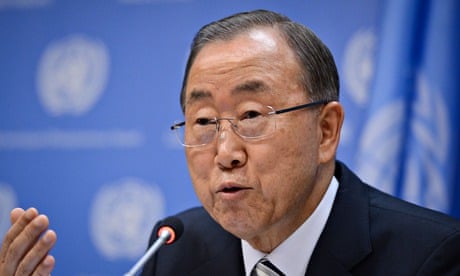



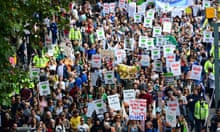
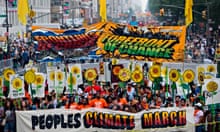
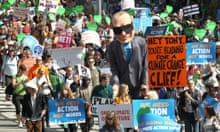
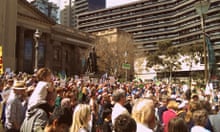
Comments (…)
Sign in or create your Guardian account to join the discussion